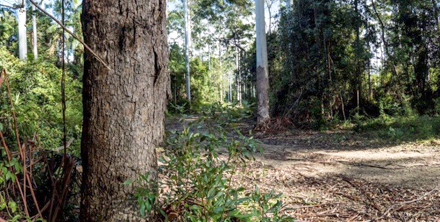Australia’s forest industry fears the Albanese government’s new national environment standards could end native forest logging nationally. Source: The Australian
Environment Minister Tanya Plibersek is drafting the new standards as part of a revamp of environmental law and has vowed to apply them to Regional Forest Agreements.
RFAs are federal-state deals that have effectively enjoyed an exemption from national environment laws, on the basis that reserves, and forest practice requirements are sufficient.
The native timber industry – already facing logging bans in Victoria and Western Australia – is sweating on the detail, fearing the new standards could “destroy” remaining industries in NSW and Tasmania.
Conservationists are “hopeful” of significant change, arguing the current system is failing to protect endangered species and high conservation value forests.
Former federal Labor minister Joel Fitzgibbon, now chief executive of the Australian Forest Products Association, warned his former colleagues against “misinformation from extreme activist groups”.
With Australia importing more than $5bn of timber each year, further curtailing native forestry would threaten the nation’s “sovereign capability” to build homes and maintain a range of timber-based industries, he said.
“Twenty-five per cent of our housing construction timber now comes from other countries,” Mr Fitzgibbon told The Australian.
“The big risk is much of that product will come from jurisdictions that don’t enforce the environmental and labour standards we do here in Australia. The industry understands and appreciates the government’s political pressures, and we are working with it to better help Australians understand the increasing role the sector can play in meeting our climate change aspirations, and our capacity to remain a country that makes things at home.”
Sources who have seen drafts of the standards said they were encouraging for conservationists.
Conservation groups are cautiously optimistic.
“It could make logging under the RFAs nigh impossible,” said Wilderness Society Tasmania forest campaigner Alice Hardinge.
Ms Plibersek said the government recognised the need for timber products and jobs but was determined to reform “broken” environment laws.
“We know native forests are valuable for their carbon storage and native habitats including for endangered animals like koalas, Leadbeater’s possums and greater gliders,” Ms Plibersek told The Australian.
“We are committed to reforming Australia’s environmental laws. These laws are broken. They don’t protect our environment and they don’t work for business.”
Victoria’s exit from native forest logging from November has forced Tasmania to review its forest contract policies.
This follows claims displaced Victorian contractors – eligible for an $875m government package for leaving the sector – are moving to Tasmania and undercutting local firms.
Log trucks have been spotted on the Spirit of Tasmania passenger ferries taking native forest logs from Tasmania to Victorian mills, while local sawmillers fear losing out to Victorian competitors.
The Wilderness Society and the Bob Brown Foundation called on the Andrews government to ban imports of native timber from NSW and Tasmania.







